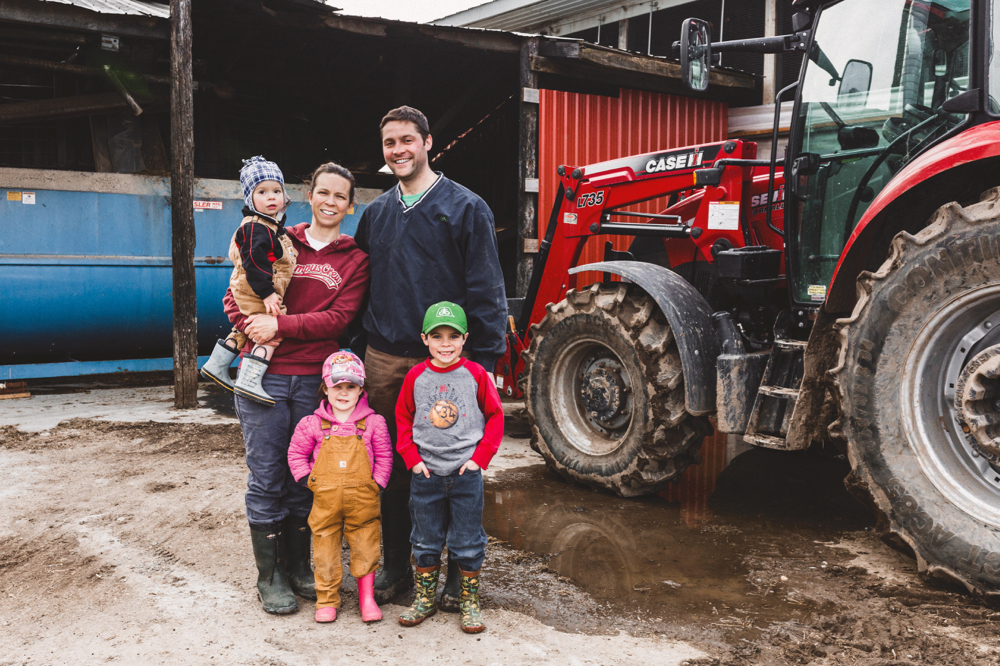My parents came to Canada from the Netherlands after the Second World War. They came with very little money and only a few words of English, but they had a dream to own their own farm.
Through hard work, diligence and a positive attitude, they were successful. But it wasn’t easy and when I have been faced with a challenge, I get the encouragement I need to persevere by reflecting on everything they went through.
I have also seen first-hand how my own children have been inspired by their grandparents’ story.
Read Also

‘No agenda, no attenda’: How to professionalize your family farm meetings
Establishing meeting ground rules can help a farm family find ways to communicate that work for the business and the family.
This family story is the kind of narrative that researchers say helps children to be more resilient. The stories where a parent or grandparent “makes lemonade from lemons” are among the most powerful, says Dr. Anne Fishel, a family therapist and professor at Harvard Medical School.
“When children hear stories of how a relative got through something difficult, it’s associated with a greater sense of well-being as adults,” Fishel says. “It’s helpful for them to know that the adults in their lives have struggled and overcome challenges.”
“When children learn that they are part of something bigger than themselves, that they are connected to previous generations, it gives them a sense of possibility,” she adds.
The value of storytelling was first studied scientifically at Emory University in Atlanta, Georgia, by Marshall P. Duke and Robyn Fulvish. Their research team noted that children who knew their family background such as how their parents met, how their name had been chosen, and where their grandparents grew up, scored higher on measures of self-reliance,.
The researchers developed a questionnaire to test children’s knowledge of family history, including knowledge they could only have learned through hearing family stories. Children who scored high on this test tended to come from families that functioned better. These children also demonstrated low levels of anxiety and depression, and were more likely to believe that they can control their own fate.
In their desire to protect their children, some parents think they should avoid sharing stories about the tragedies or traumas that family members have experienced. However, Fishel says that if these stories are told with sensitivity when the child is at an appropriate age (over the age of 12), they can help children see that it is possible to overcome difficult events.
“The problem with not telling important parts of your family’s history, particularly the painful parts, is that secrets have tremendous power. Children often sense that there is something they aren’t being told. In an effort to make sense of a mystery, they often make up an even worse story,” she says. “And they grow up with the belief that there are things too terrible to speak about, and this can be a real burden.”
Telling stories — especially stories about bad luck turning into something good — also benefits the adult storytellers. In a recent study, adults who told such stories showed higher levels of well-being, Fishel says.
The key is to create opportunities to talk without competition from the TV, smartphones and iPads. Family meals are ideal times for these conversations as long as there are no screens at the table. While Fishel reports only about 10 per cent of conversations around the kitchen table are family stories, they get remembered, and they have a big cumulative impact.
Not sure where to begin? Keep in mind that children enjoy hearing stories about when you were their age, says Fishel. You could tell them about a favourite 4-H calf, the experience of moving from one place to another, your holiday rituals, or a chore you didn’t like doing as a child, for example. “These stories have the potential to teach important family values, to entertain, and to stretch a child’s understanding of the world,” she says.
Family gatherings are another place where children can learn about their family history. Children can ask older relatives what things were like when they were growing up. What school did they go to, and what did they learn at school? How has the farm changed through the years? How many and what kind of livestock were there? How has the technology used on the farm changed? What did people do for fun?
These stories can become part of a person’s legacy that they leave for future generations.
Old photo albums can serve as reminders to spark the recounting of old stories. You could scan some of the old photos (or even use your smartphone to take pictures of them) so you can frame them or create a scrapbook. To preserve the stories, take notes or use the voice recorder on your smartphone. Too often when an older family member dies, their stories die with them.
In addition to hearing family stories, children should be encouraged to recount their own stories. Children who learn to tell stories become better readers, Fishel notes. Parents can prompt their children to talk about their day by using how, when and why questions.
Storytelling games can also be a fun shared family activity at the dinner table. For example, you can play a game where one person begins with a sentence and each person at the dinner table adds a sentence to propel the story along. The game helps children learn the elements of a good story and its structure, with a beginning, middle and end, interesting characters and plot twists.
“Highs and lows” is another game you can play around the kitchen table. Everyone takes a turn recounting one bad thing that happened to them that day and one good thing. This helps children learn how to handle the ups and down of life, says Fishel. By sharing the highs and lows of your day, your children will have a better understanding of the realities of farming. It also gives parents the opportunity to model problem solving, team work and communication skills.
As agriculture continues to change quickly, family narratives of how past generations innovated and adapted to change can help ground children and prepare them to embrace the changes to come.
Resources
Home for Dinner: Mixing Food, Fun, and Conversation for a Happier Family and Healthier Kids by Dr. Anne Fishel
















